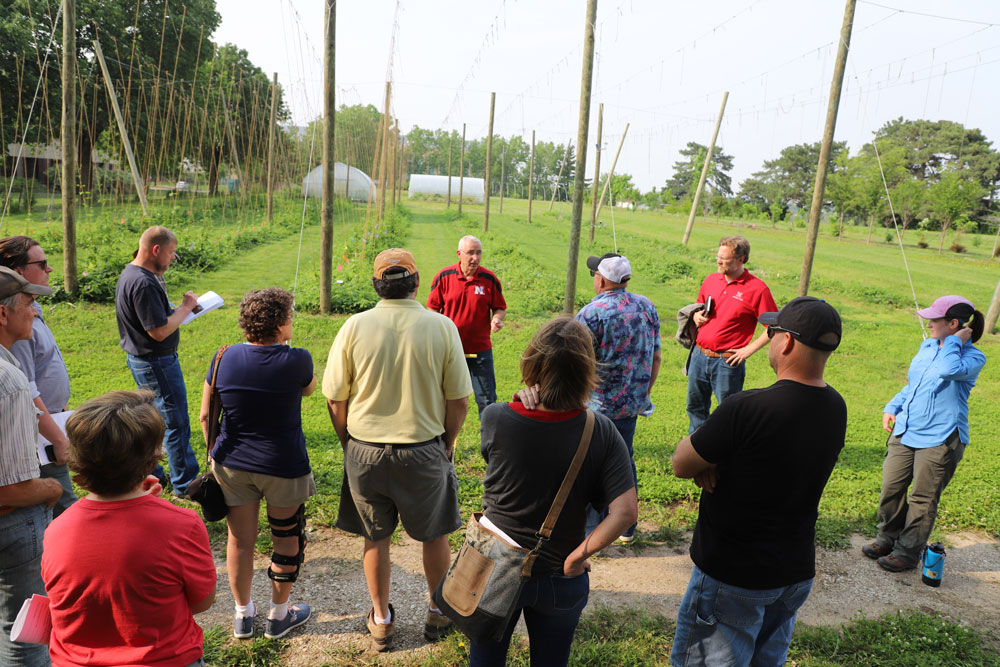
Eighteen individuals from Nebraska and Iowa took advantage of the opportunity to attend two, free hop workshops offered at the University of Nebraska–Lincoln May 31.
The Introductory Hop Growers Workshop was dedicated to understanding what the hop plant is, its use in industry, attributes and qualities of interest, how the plant grows, its production systems and considerations that go into commercial production of the plant.
Stacy Adams, associate professor of practice in agronomy and horticulture, gave the formal presentation on hop production along with a question and answer period.
Adams explained how the hop plant is comprised of two distinct parts — the perennial underground part of the plant and the annually growing, extensive top growth that presents the blooms (cones) of interest to growers.
The presentation also discussed enhancing personal income through production of specialty crops. Participants were able to see live hop plants and their growth habit in the East Campus teaching garden.
The Introductory to Hops Workshop was supported through the Nebraska Department of Agriculture, Specialty Crops Block Granting Program.
The second workshop, the Hops Training Field Program, was located in the one-fourth acre, East Campus hop yard located southeast of the law college. Adams discussed trellis systems and design and how to suspend and affix the coir yarn training rope. A demonstration was also given on how to select and train hop shoots on the coir yarn trellis system.
Workshop participants observed and compared plant growth characteristics between hop varieties and experienced how to identify early and late signs of downy mildew fungal infections.
Keenan Amundsen, associate professor of agronomy and horticulture, presented his research on developing new hop cultivars suitable to the Midwest through selection and crossing of wild varieties with those that are presently in production.
Allison Butterfield, a horticulture graduate student, presented information on a bio-based mulch study and the potential for weed control in hops, as well as, the beneficial side effects a bio-based mulch can provide as a much-needed additional nitrogen source and builder of organic matter in the soil.
More details at: https://go.unl.edu/rzid